Current polls give a high probability that a right-wing coalition will win Italy’s next elections on September 25. Giorgia Meloni, leader of Brothers of Italy (Fratelli d’Italia, or FdI), the right-wing party that is heading the polls, could become Italy’s first female prime minister — but if she wins, she will also be its first head of government whose political party has never fully renounced its fascist background.
During her campaign, Meloni alternated between reassuring and extremely controversial statements about her political agenda. She also ambiguously defined former Italian Prime Minister Benito Mussolini as a personality who needs to be framed in a specific historical context. The election comes almost exactly 100 years after Mussolini’s march on Rome that opened the way to his dictatorship.
Why anti-establishment parties are so popular in Italy
From a statistical perspective, however, Brothers of Italy’s rise is no different from that of all other Italian anti-system parties from the 1990s onwards. The current developments — though traumatic for Italy’s political culture — appear to be a new round of the same phenomenon, with single parties suddenly rising and surfing the waves, one after the other, of endlessly protesting Italians. Those waves have not stopped rolling since the resurgence of anti-political sentiment in the early 1990s.
In the 2008 and 2013 elections, Brothers of Italy won less than 2% of the vote and in 2018 it got around 4%. Currently, four weeks ahead of the elections, polls ascribe around 24% to Meloni’s party. The same pattern has been methodically replicated over the last three decades. In 1994, Berlusconi’s Forza Italia, founded only five months earlier, became the first party with 21% of the vote. The Lega political party obtained only about 4% of votes between 2001 and 2006, but rose above 37% in 2019, shortly after the latest European elections. The Five Star Movement, founded in 2009, got 25% only four years later, and 32% in the 2018 elections.
According to the current polls, all three parties that started as anti-political protest movements — Forza Italia, Lega, and the Five Star Movement — now garner only a third of their earlier maximum support. Soon after taking on government responsibilities, Italian parties lose credibility in the eyes of an electorate that is constantly looking for the next critical voice against the established political system.
Hyperboles thus turn into parables. Could this also happen to Brothers of Italy in 2023?
Will Italy become more like Poland and Hungary?
The Italian pattern is unique in scale, but protest parties have been common in most European countries for the last 20 to 30 years and not all have been shooting stars. Poland and Hungary offer important reference points. Their most popular parties — Law and Justice (PiS) and Fidesz — have managed to control positions of power over several years, and still do. According to the European Commission, governments in Budapest and Warsaw have modified constitutional norms and other democratic functions of their political systems to strengthen their control over the country. Hungarian Prime Minister Viktor Orbàn defined the new political model as an “illiberal democracy”.
Orbàn and Meloni declare strong reciprocal sympathy and Brothers of Italy is allied in the European Parliament with the Polish Law and Justice party. Given the post-fascist cultural environment in which most of Brothers of Italy’s core leadership came of age, it is legitimate to ask whether the “illiberal” model is Meloni’s goal, should she obtain the premiership, as she is likely to be alert to the risk of a subsequent decline in her party’s support from voters. Changing Italy’s constitution would be possible through a parliamentary procedure if the ruling coalition commands a two-thirds majority in the parliament. According to the current polls and seat estimates, the right-wing coalition has a non-negligible chance to win such a majority.
However, limiting democratic rights in an advanced society and a strongly decentralized economy is not easy. Italy’s lack of consensus was born out of strong anti-establishment sentiments in the 1990s, but it has grown in the last 20 years in the wake of Italians’ disappointment with the economy. Short of banning electoral democracy, no matter how hard you twist the constitutional democratic guarantees, if you do not deliver economic growth, you are bound to be outvoted at the first possible chance.
EU money comes with democratic strings attached
Pushing Italy toward a fully-fledged authoritarian system would not be compatible with delivering economic growth. One reason lies in the fact that Italy’s economy is kept afloat by European institutions. The European Central Bank ensures an implicit — and sometimes explicit — guarantee that Italy will not default or exit the euro. The EU Commission provides the Italian economy with a substantial aid program — the NextGenerationEU (NG-EU), amounting to 11-12% of Italy’s GDP over five years – that no political leader in her right mind could renounce. Aid is conditional on respecting and upholding the democratic requisites of EU treaties. In the context of the NG-EU program, reforms and incentives are subject to extremely strict control by the EU Commission. It will not be easy for Meloni to reduce civil rights or practice autocratic policies and still receive the EU funds. Transfers to Hungary, for instance, are currently delayed because Orbàn’s regime is not compliant.
No doubt, in the past Meloni was tempted to break free from Europe. In 2014, Meloni vowed “to build a majority in the European Parliament with the other Euro-critical movements for a motion that would allow the European Commission to be forced into an agreed and controlled dissolution of the eurozone”. Brothers of Italy advanced the proposal in the parliament for the “controlled dissolution” of the monetary union or, as an alternative, for Italy to leave the euro. In 2018, the party requested to remove all references to the EU in the Italian constitution, to sanction the supremacy of national law over European law. Strong rhetoric depicting Italy as the victim of German and French power grabs has characterized Meloni’s party over the last decade. No mention has ever been made of European partners’ solidarity in 2020 when Italy was generously supported during the COVID-19 pandemic and economic crises.
One possibility for Meloni would be to join Hungary and Poland on foreign policy issues and move against the European mainstream. This anti-European front is theoretically possible and could underpin a nationalist narrative. However, the practical results would be poor because the three countries would come short of blocking the others. The way the EU decides on foreign policy reduces the possibility of opting out. Sanctions against Russia, for instance, are imposed within the framework of the Common Foreign Strategy Policy (CFSP) in which the measures are either implemented at the EU or the national level. Measures such as arms embargoes or restrictions on admission are implemented directly by the member states, which are legally bound to act in conformity with CFSP Council decisions. Other rulings to interrupt or reduce economic relations with a third country, including freezing funds and economic resources, are implemented using a regulation that requires a qualified majority. Such regulations are binding and directly applicable throughout the EU. Italy, Poland, and Hungary are not large enough to form a blocking minority.
Italy’s government WIll HAVE hard choices to make
Unless there is a virulently pro-fascist campaign on social media after the vote — a factor that political analysis often struggles to account for — it is very likely that, once in power, Meloni will embrace a more conventional political line toward Europe. She might tone down her calls for Italy’s sovereignty to prevail over European allegiance.
But even if she sounds less euro-skeptic, Meloni will not necessarily succeed at putting Europe’s solidarity to good use. The success of Europe’s financial programs depends on the efficacy of Italy’s administrative implementation of the reforms and the investment plans agreed in the NG-EU program. Brothers of Italy’s track record on this is very poor, as its horrendous management of Rome’s mayorship between 2008 and 2013 demonstrated.
According to the IMF, even in the best-case scenario — that is, even if all the NG-EU projects are efficiently activated — Italy’s potential growth might reach 0.8 % at most. With European interest rates at average historical levels, Italy’s government should keep posting a primary budget surplus of at least 2%, just to keep its debt-to-GDP ratio stable. According to the Financial Times, hedge funds are already building the biggest bet against Italian debt since 2008. Should a debt crisis happen, calls to reinstate the current outgoing Prime Minister Mario Draghi would become louder.
Against this backdrop, Meloni needs to go out of her way to reassure markets. However, in order to prevent a traumatic debt crisis, every year Italy’s government will have to ask Italians to hand over at least 2% of their stagnating incomes to the state — more than they receive from the state itself in terms of services and welfare. Thirty years of citizens’ irritation against the political system is hardly going to vanish.
The Brookings Institution is committed to quality, independence, and impact.
We are supported by a diverse array of funders. In line with our values and policies, each Brookings publication represents the sole views of its author(s).

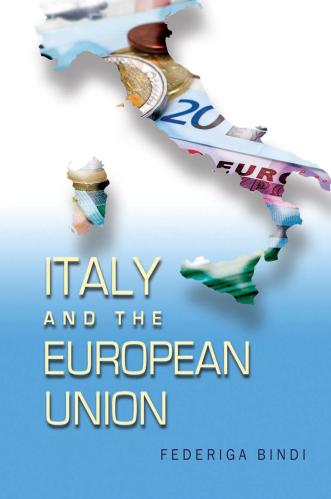
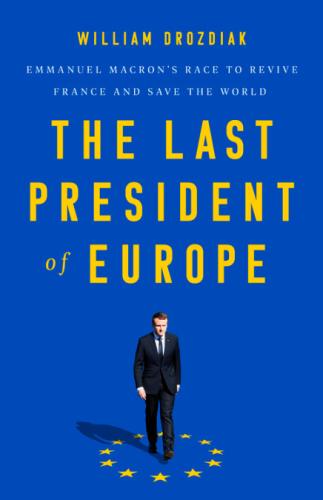
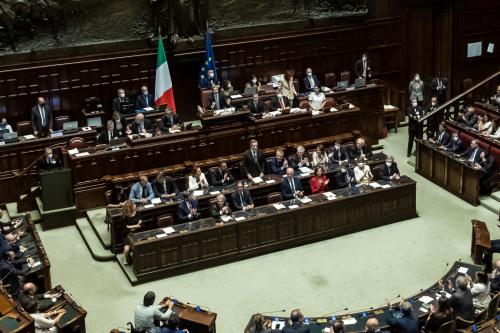
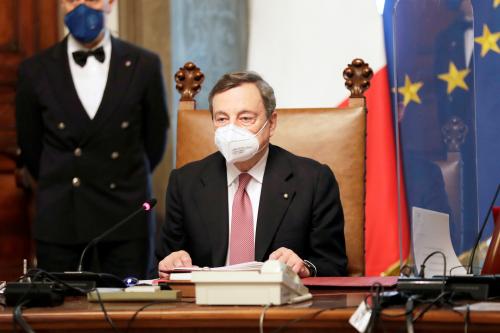
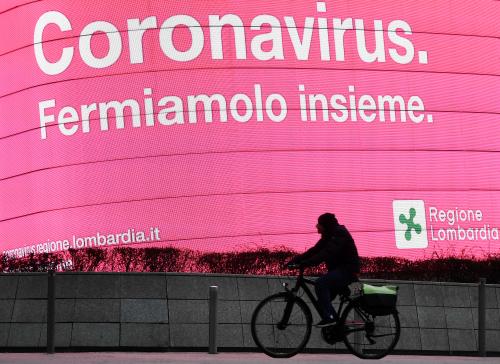

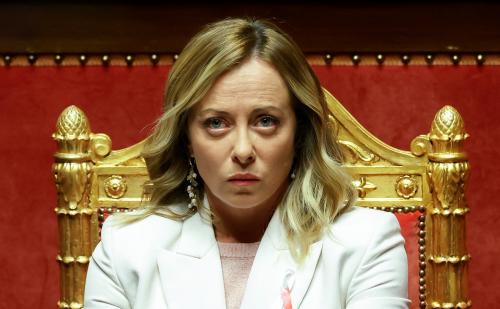

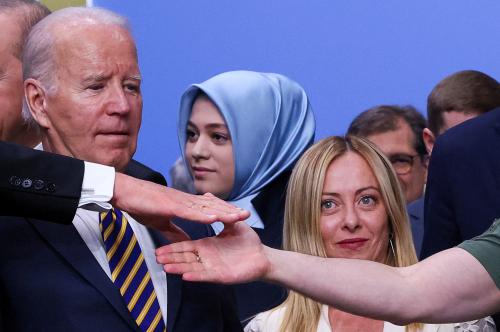
Commentary
What happens if right-wing Giorgia Meloni wins Italy’s elections?
August 26, 2022